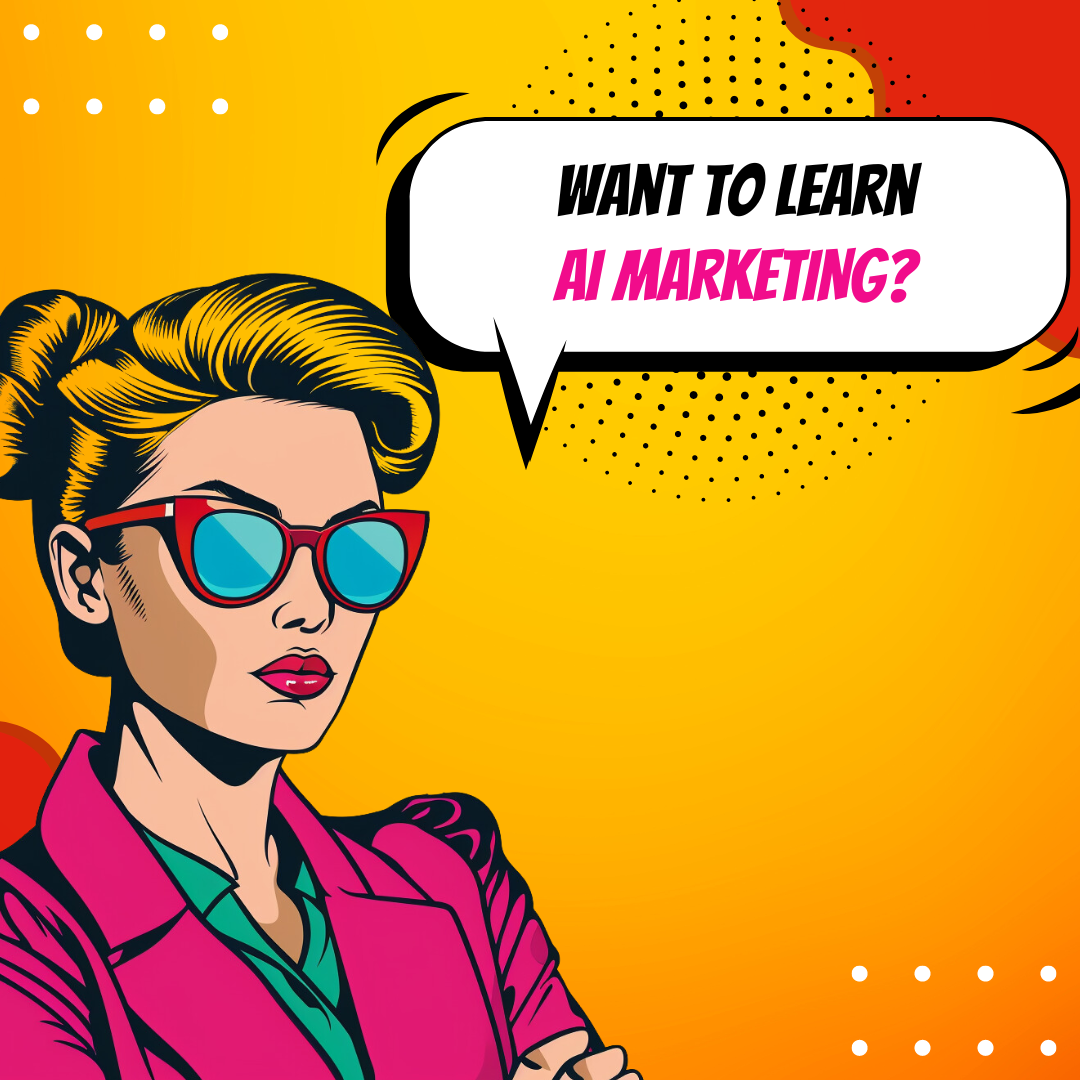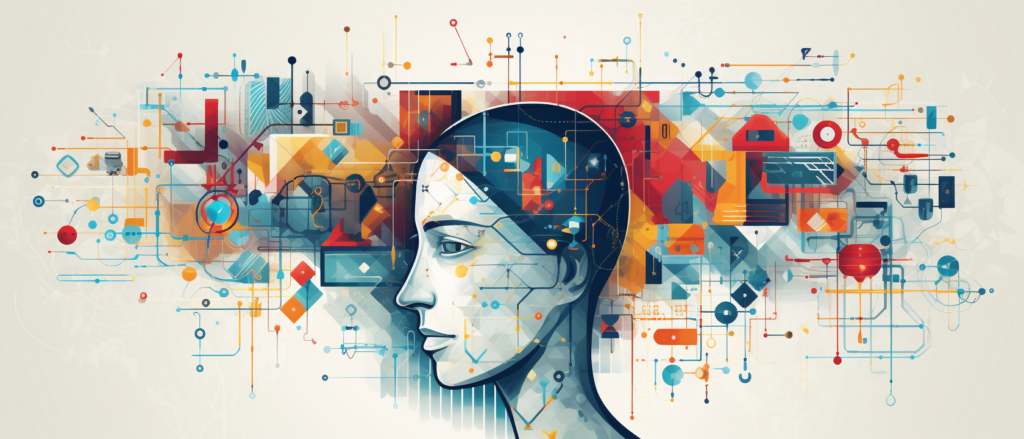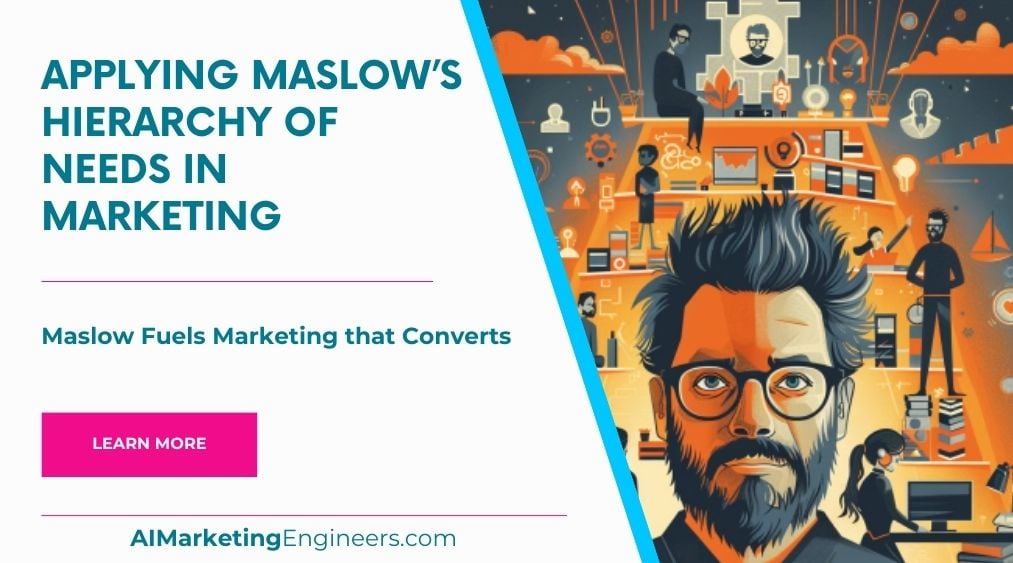Key Takeaways
✅ AI Adoption in Marketing: A recent study by Salesforce found that 84% of marketing organizations are using AI, a significant increase from just 29% in 2018. This rapid adoption underscores the growing importance of AI in developing marketing strategies, personalizing customer experiences.
✅ ROI from AI Investments: According to a report by the Boston Consulting Group, companies that have integrated AI into their marketing strategies have seen an average increase in revenue of 6% to 10%.
✅ Customer Personalization and Engagement: A survey by Epsilon revealed that 80% of consumers are more likely to make a purchase when brands offer personalized experiences.

Introduction
In the ever-evolving world of digital marketing, Artificial Intelligence (AI) stands as a revolutionary force, reshaping how businesses interact with their customers and optimize their marketing strategies. AI in marketing refers to the integration of artificial intelligence technology to enhance and automate marketing processes, delivering more personalized, efficient, and impactful campaigns. This technology is not just a futuristic concept but a present-day reality that is transforming the landscape of digital marketing.
The Evolution of Marketing with AI Integration
The journey of marketing has been a dynamic one, evolving from traditional print media to the digital age's complex landscape. With the advent of AI, this evolution has accelerated, offering innovative tools and techniques to marketers. AI has made it possible to analyze vast amounts of data, predict customer behaviors, and automate repetitive tasks, leading to more intelligent, data-driven decision-making. This shift is not just a step but a leap forward, bringing a level of precision and personalization previously unattainable.
Key Uses of AI in Marketing
- Content Personalization: AI has redefined personalization in marketing. By analyzing customer data and online behaviors, AI enables the creation of dynamic content tailored to individual preferences. This personalized approach enhances user engagement and fosters a deeper connection between brands and their audiences.
- Data Analytics: AI excels in predictive analytics, using historical data to forecast future trends and outcomes of marketing campaigns. This capability allows marketers to strategize with greater confidence and accuracy, ensuring that resources are allocated effectively for maximum impact.

- Content Generation: AI's role extends to content creation, assisting in generating captivating marketing copy. From crafting compelling email subject lines to creating engaging blog posts, AI augments the creative process, offering a blend of speed and relevancy.
- Media Buying: In advertising, AI is revolutionizing media buying by predicting the most effective ad placements and optimizing spending for better returns. This intelligent targeting ensures that marketing messages reach the right audience at the right time.
- Chatbots: Utilizing NLP, chatbots provide instant customer service, engaging users in meaningful conversations and assisting them throughout their journey. This AI application not only improves customer experience but also streamlines lead nurturing and support processes.
- Automated Email Marketing: AI enhances email marketing by learning from user interactions. It optimizes email content and timing based on user behaviors, leading to higher open rates and better engagement.
Benefits of AI in Marketing
The integration of AI in marketing strategies offers numerous advantages:
- Enhanced Digital Marketing Plans: AI enables the creation of more sophisticated and effective marketing strategies. By leveraging AI's data-processing capabilities, marketers can craft campaigns that resonate more deeply with their target audience.
- Improved Customer Experiences and Engagement: AI-driven personalization leads to more relevant and engaging customer experiences. Thisenhanced interaction not only boosts customer satisfaction but also fosters long-term loyalty.
- Efficiency in Marketing Strategies: AI automates and streamlines various marketing tasks, from data analysis to content creation, allowing marketing teams to focus on more strategic and creative aspects. This efficiency results in not only time savings but also a significant improvement in campaign performance and ROI.
AI Technologies in Marketing: Pioneering a New Era
The advent of AI technologies in marketing has been nothing short of revolutionary, offering tools and methods that have transformed how businesses approach their marketing strategies. By leveraging various subsets of AI, companies are now able to engage with their customers in more personalized and effective ways.
- Machine Learning Algorithms: Personalization at Scale
- Customer Segmentation: Machine learning algorithms excel at parsing through customer data to segment audiences into distinct groups. This segmentation allows for targeted marketing strategies, ensuring that the right message reaches the right audience.
- Predictive Recommendations: These algorithms analyze past customer behavior to predict future preferences, enabling businesses to offer personalized product or content recommendations, enhancing the customer experience and increasing the likelihood of conversions.
- Churn Prediction: By identifying patterns that indicate a customer might be at risk of leaving, machine learning helps businesses proactively engage with these customers, offering personalized incentives to retain them.
- Natural Language Processing (NLP): Enhancing Communication and Analysis
- Chatbots: NLP empowers chatbots to understand and respond to customer queries in a human-like manner, making them an invaluable tool for customer service and engagement.
- Voice Search Optimization: With the rise of voice-assisted devices, optimizing for voice search has become crucial. NLP enables businesses to understand and respond to spoken queries effectively.
- Sentiment Analysis: NLP tools can analyze large volumes of text, like customer reviews and social media posts, helping businesses gauge public sentiment and tailor their marketing strategies accordingly.
- Computer Vision and Image Recognition: Visual Intelligence in Marketing
- Content Generation: AI in visual content generation can create compelling images and videos, enhancing digital marketing campaigns.
- Brand Recognition: Through image recognition, AI can identify branded items in various media, helping marketers track and analyze their brand’s presence.
- Ad Targeting: AI can analyze the content of web pages and social media to place relevant ads, improving the effectiveness and relevance of advertising campaigns.
AI Marketing Tools and Platforms: Driving Innovation in Marketing
- Jasper AI: As a powerful content creation tool, Jasper AI uses artificial intelligence to generate persuasive marketing copy, facilitating the creation of content that resonates with the target audience.
- Scalenut: This platform leverages AI to create impactful content based on audience analysis, industry trends, and competitive insights, streamlining content marketing strategies.
- Seventh Sense: Focused on email marketing, Seventh Sense uses AI to optimize email send times, improving open rates and overall engagement with email campaigns.
- Murf AI: Specializing in voice technology, Murf AI's text-to-speech and voice cloning features allow for innovative marketing approaches, such as personalized voice-based content.
- Acrolinx: This tool focuses on content optimization, ensuring consistency, clarity, and compliance across all marketing materials, enhancing brand communication.
Real-World Applications and Case Studies
The practical applications of AI in marketing are vast and varied. Real-world examples include:
- E-commerce Giants: Companies like Amazon use AI for personalized product recommendations, significantly boosting their sales and customer satisfaction.
- Social Media Platforms: Platforms such as Facebook and Instagram use AI algorithms for targeted advertising, enabling businesses to reach highly specific audiences.
- Retail Chains: Major retailers utilize AI for inventory management and predictive analytics, ensuring that marketing efforts align with customer demand and preferences.
Challenges and Considerations in AI Marketing
While AI in marketing heralds numerous opportunities, it also presents unique challenges and considerations that businesses must navigate.
- Time and Training:
- Implementing AI solutions requires significant time and resources. Businesses must invest in training their teams to effectively use these technologies, ensuring a clear understanding of how AI tools can be integrated into their existing marketing strategies.
- The continuous evolution of AI means that ongoing learning and adaptation are necessary, which can be a resource-intensive process.
- Data Privacy:
- With AI relying heavily on data, ensuring the privacy and security of customer information is paramount. Businesses must adhere to data protection regulations like GDPR and ensure transparent data usage policies.
- The challenge lies in leveraging customer data for personalization while maintaining the trust and confidentiality that customers expect.
- Managing Customer Expectations:
- AI enables hyper-personalized marketing, but this raises customer expectations. Businesses must strive to meet these expectations consistently across various channels.
- There's also the risk of personalization becoming intrusive, so finding the right balance is crucial to maintain customer trust.
- Ethical Considerations and Trust:
- Ethical considerations, such as avoiding biases in AI algorithms, are critical. Unchecked biases can lead to discriminatory practices and damage a brand’s reputation.
- Building trust in AI-driven marketing methods is another challenge. Companies need to be transparent about their use of AI and ensure it aligns with customer values and privacy expectations.
Future of AI in Marketing
Looking ahead, the potential of AI in marketing is vast:
- Increased Personalization and Efficiency: AI will continue to refine the ability to deliver highly personalized customer experiences at scale. This will enhance campaign effectiveness and efficiency, leading to better ROI.
- Predictive Marketing: AI's predictive capabilities are expected to advance, enabling businesses to anticipate customer needs and market trends more accurately.
- Voice and Visual Search: As voice and image recognition technologies improve, their integration into marketing strategies will become more prevalent, offering new avenues for customer engagement.
- Ethical AI and Privacy Focus: The future will likely see a stronger emphasis on ethical AI practices and heightened focus on customer data privacy.
Conclusion
The integration of AI into marketing represents a transformative shift in the industry. AI has the power to make marketing more personalized, efficient, and impactful, offering businesses a competitive edge in a rapidly evolving digital landscape. However, it’s important for businesses to approach AI with a balanced view, acknowledging the challenges and ethical considerations it brings.
To truly harness the potential of AI in marketing, businesses must invest in training, adhere to ethical and privacy standards, and continuously adapt to technological advancements. By doing so, they can leverage AI not just as a tool for automation, but as a strategic ally in creating more meaningful and successful marketing campaigns. In the age of AI, those who adapt, innovate, and remain ethically grounded will be the ones to forge ahead and redefine the marketing landscape.














